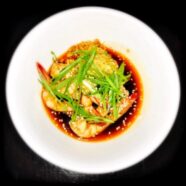James Islanders luck out with Kwei Fei’s unlikely arrival and bold flavors (Charleston City Paper)
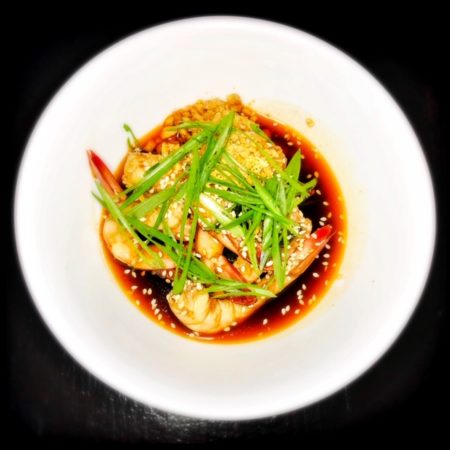
What do an eighth century Chinese consort, an ’80s new wave soundtrack, and a dogged journeyman chef have in common? No, not a Jon Favreau time travel themed sequel to Chef, but a permanent — and much-deserved — home for chef David Schuttenberg’s former weekend-only ‘residency’/pop-up, Kwei Fei.
Set next door to Charleston Pour House in the space previously occupied by The Lot, the interior looks the same-ish, except now the chairs are yellow and you’ll find some Asian knick knacks scattered about. But the updates are the only understated thing about Kwei Fei. Pretty much nothing else — from the food to the music to the chef himself — can be described as subtle.
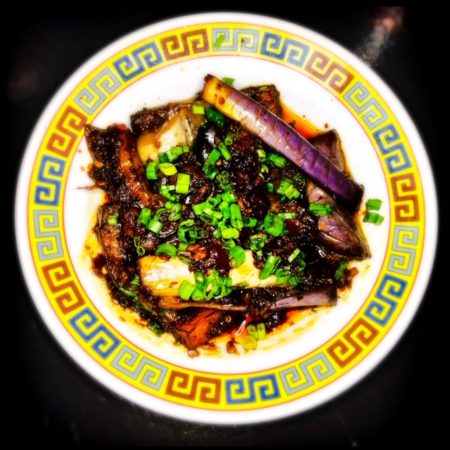
After classic French training in NYC, Schuttenberg went on to work at Tom Colicchio’s Craft and then helped develop the now-shuttered, Malaysian-focused Fatty Crab before switching gears again to work with Southwestern flavors. Chef found Charleston as part of the ill-fated Wise Buck/Scarecrow project and spent some time thereafter working to find his stride in the Holy City. All things considered, the fact that Kwei Fei is a Sichuan restaurant based on James Island makes absolutely no perfect sense.
Leave your P.F. Chang’s-based expectations at the door — Kwei Fei’s menu is an equally wild ride, offering an array of appetizers, entrees, and veggie-based sides sorted into blocks labeled “Loud,” “Hot,” and “Vibes.”
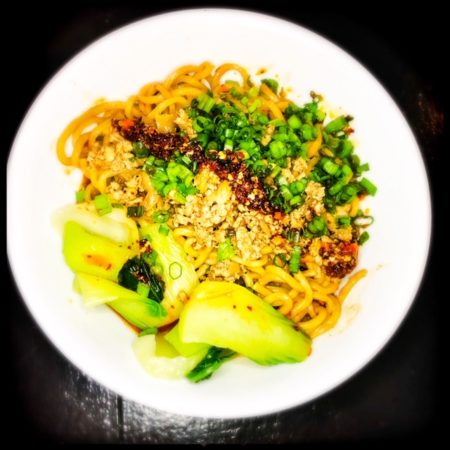
The crescent dumplings ($7) are an outstanding way to give your tastebuds a crash course in the events to come. Made with ground pork and redolent Sichuan pepper, the five plump dumplings are served in a soy-based, vinegary sauce and topped with fresh cilantro and chives. Hot, sour, salty, sweet: everyone’s here.
The Hong Yu shrimp ($12) are slightly less assertive, bordering on sublime. Roughly a dozen small, tail-on local shrimp are baptized in a deep red oil that starts out mild before revealing a slow burn. Served cool, they’re sprinkled with scallions, crushed peanuts, and sesame seeds and they’re absolutely perfect. Note, if you can steel yourself to leave a few unconsumed, they’re even better the next day.Hong yu shrimp (below left) comes with roughly a dozen small, tail-on local shrimp
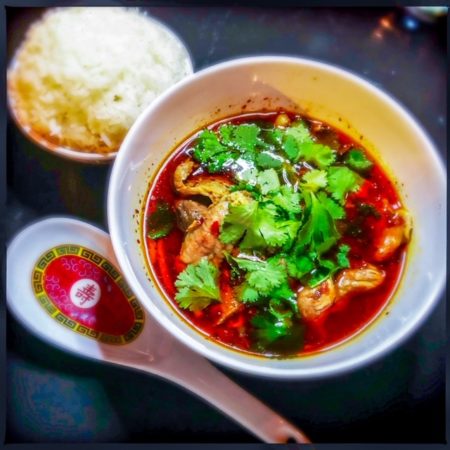
On the heartier side of things, and in hopes of proving this is not a paid advertisement, the Dan Dan Mian ($14) is not my bag. One of the more commonly seen Sichuan offerings, highly touted by the waitress, the preparation is fairly by-the-book. Originally sold as street food, the Kwei Fei version is made with bok choy, sesame paste, and minced pork along with black vinegar and peanuts. The wheat noodles suck up the varied flavors nicely, yet — perhaps since accompanied by otherwise starchless dishes — the net effect seems particularly pasty and doughy.
On that note, the Sichuan beef ($16) is a far cry from the Americanized stir-fry made with carrots, celery, and flamboyant whole chili pods. This is the real deal, with sliced flank steak poached in a fermented chili oil sauce and served as a soupy stew. We were encouraged to order it with a side of rice ($3), and I would highly recommend ignoring that advice.
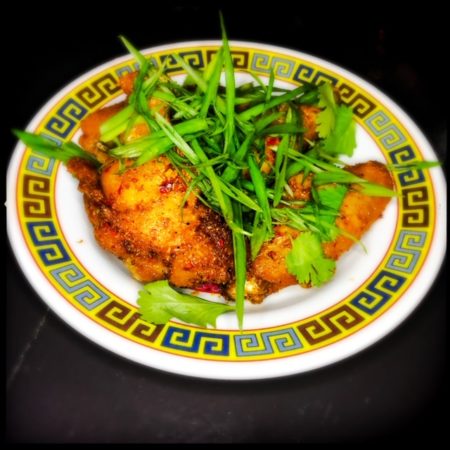
Truth be told, while onsite, I didn’t particularly appreciate it. But late that night, in a heartburn-inducing “re-tasting” ritual I often employ with the leftovers of complex preparations, the true nuances of the dish were apparent. Eaten with a spoon and embraced as an oily soup, there’s a pronounced punch of fresh ginger and the subtle depth of shiitake mushrooms, balanced by the crunchy bean sprouts and tender strips of beef. Get some. Hold the rice.
At the same time, and to be fair, I have to imagine the friendly, rice-pushing waitress has good intentions and has likely come up against some umbrage. Case in point, she was keen to note that the chicken and wild mushroom claypot ($16) is most suitable for anyone opposed to spice. Hear ye, hear ye, the only thing more cruel than bringing a GERD-afflicted, spicy-food sensitive individual to dine at Kwei Fei would be bringing someone with a deadly peanut allergy.
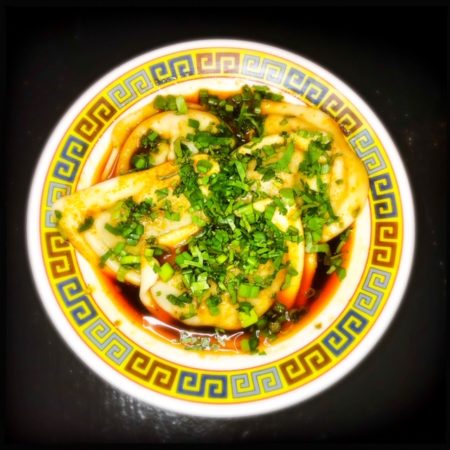
The restaurant offers a smattering of beers, wines, and cocktails, including a pepper-infused Sichuan Negroni ($12). However, considering the heat level of pretty much everything, it was hard to discern much burn. “I may not taste anything else I eat all week, but it’ll be worth it,” commented my dining companion, chugging her third glass of water.
On the “vibes” side of things, vegetarians are well-taken care of with the dry-fried green beans ($6). Here some rice makes sense and adds bulk to the delicate haricots verts, which are coated with an intense, chunky garlic and ginger combo with a little spicy kick. But of course.
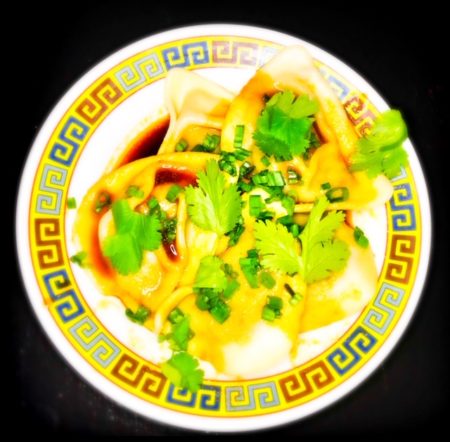
Similarly, the Yu Xiang eggplant ($6) is outstanding. Deeply imbued with soy sauce, fresh ginger, and black vinegar flavors, there also seemed to be toothy bits of dou ban jiang, fermented broad bean paste, in the mix. Whatever is going on, it’s excellent, and should be available by the quart, white paper pagoda box optional.
Alas, although take out is an option, likely the best way to enjoy Kwei Fei is to become one with Kwei Fei. There, the music is loud, the food is loud, and even the cocktails are spicy. You’re on Schuttenberg’s turf now, and one can only hope the multi-cuisine-capable chef stays interested in providing Zen-shattering delights for a good, long while.

